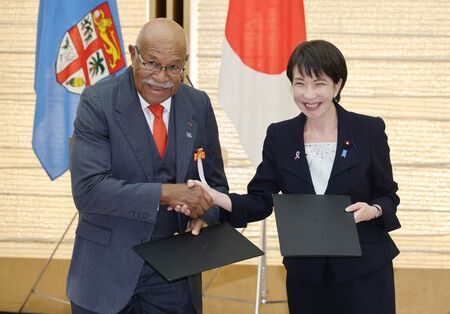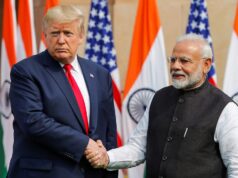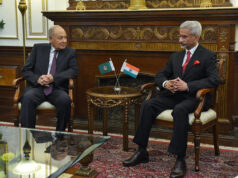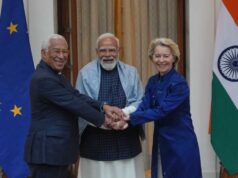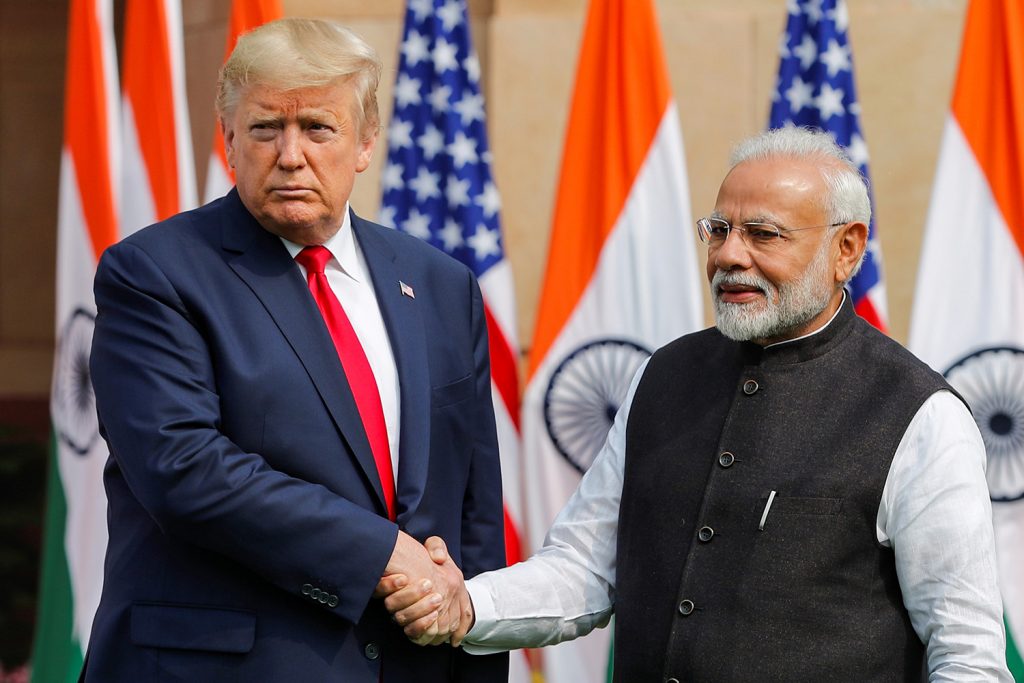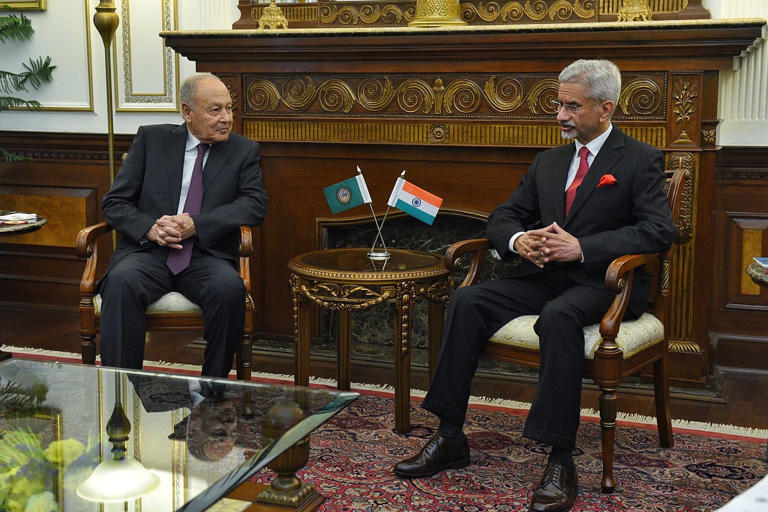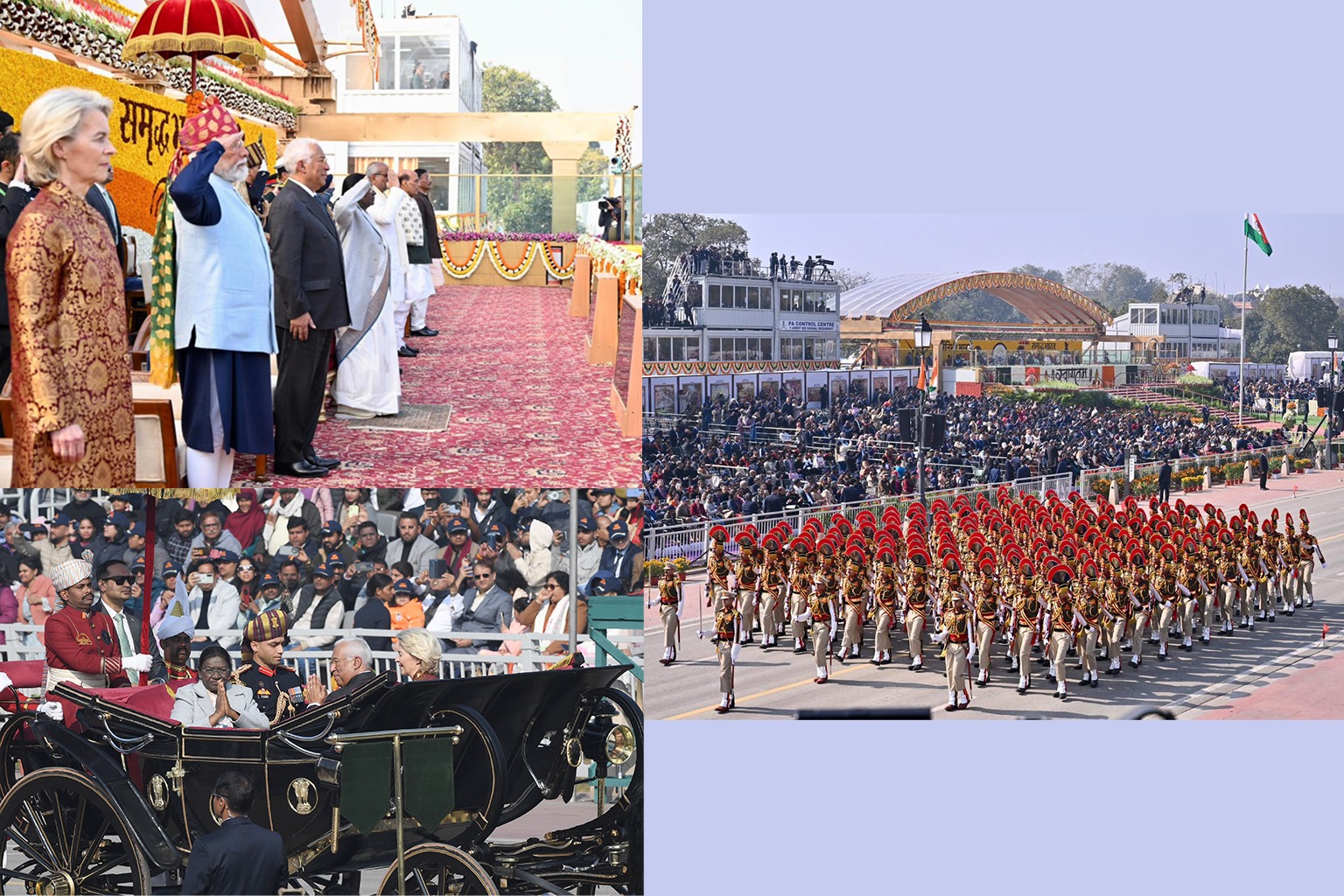Japan and Fiji have agreed to strengthen their bilateral relationship, elevating it to a comprehensive partnership following high-level talks in Tokyo on 13 November, 2025, Thursday. Japanese Prime Minister Sanae Takaichi and her Fijian counterpart, Sitiveni Rabuka, met in the capital late in the afternoon, holding discussions for around half an hour before signing a joint communique that lays out an expanded framework for cooperation.
The newly adopted “Lomavata Kizuna Partnership” — with Lomavata meaning “unity” in Fijian — is intended to guide the two nations’ collaboration across a broad spectrum of regional and global issues. The agreement emphasises their shared commitment to a free and open Indo-Pacific, underpinned by the rule of law and respect for sovereignty. Speaking after the meeting, Prime Minister Takaichi said Japan sees Fiji as an essential partner in maintaining stability in the Indo-Pacific region. She noted that the countries already share common values and principles, and expressed her determination to deepen the bonds between them. Her Fijian counterpart echoed the sentiment. Mr Rabuka said Fiji hopes to reinforce its ties with Japan as both countries work together to confront global challenges. He expressed gratitude for Japan’s longstanding cooperation, particularly in areas central to Fiji’s development.
Wider Cooperation Across Key Sectors
Recent years have seen steady expansion in collaboration between the two nations, ranging from infrastructure and education to health, medical care, disaster prevention and sports exchanges. The new partnership formalises this trajectory, with both leaders confirming their intention to broaden and strengthen work already under way. Japan’s support remains tailored to Fiji’s priorities. Prime Minister Takaichi highlighted initiatives such as the provision of a disaster response vessel and efforts to boost Fiji’s economic resilience and regional connectivity. Mr Rabuka welcomed these contributions, describing them as vital to Fiji’s future prosperity.
Security Collaboration and Maritime Concerns
Maritime security featured prominently in the talks. Both leaders agreed to intensify cooperation against transnational organised crimes, including illegal fishing — a persistent challenge across the Pacific. The meeting also marked a milestone in defence cooperation, with the leaders welcoming the world’s first delivery of equipment under Japan’s Official Security Assistance programme, which has been implemented in Fiji. They reaffirmed that such collaboration is crucial to maintaining regional peace and stability. Japan further expressed its wish to maintain close coordination with Fiji on issues related to North Korea, including nuclear and missile developments and the longstanding abductions issue.
ALPS Water Discharge and Regional Engagement
Prime Minister Takaichi conveyed her appreciation for Fiji’s trust in Japan’s handling of the discharge of ALPS-treated water into the sea. She reiterated that Japan would continue to act transparently and on the basis of scientific evidence. Mr Rabuka reaffirmed his confidence in Japan’s approach.
The leaders also discussed wider Pacific regional affairs. Japan restated its support for the Pacific Islands Forum’s “2050 Strategy”, noting that commitments made at last year’s Pacific Islands Leaders Meeting — including a 3 million USD contribution to the Pacific Resilience Facility — are being carried out as pledged. Both sides agreed to continue working towards the next Pacific Islands Leaders Meeting, scheduled for 2027. Prime Minister Takaichi also welcomed Fiji’s “Ocean of Peace” declaration, observing that its principles are closely aligned with those of a free and open Indo-Pacific. The two leaders agreed to cooperate in promoting peace and stability across the region. Before concluding their discussions, the prime ministers exchanged views on a series of regional issues, signalling a shared intent to confront challenges collectively as their renewed partnership takes shape.

